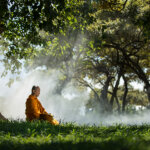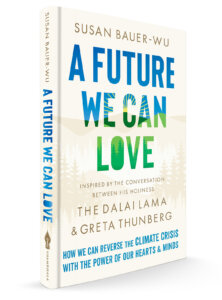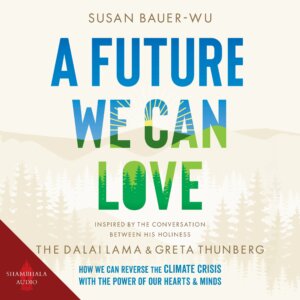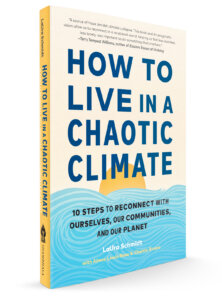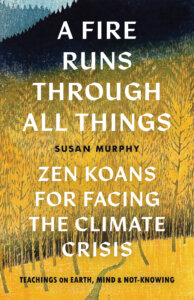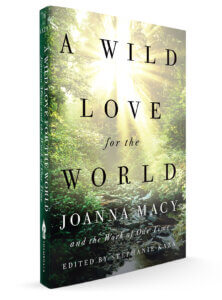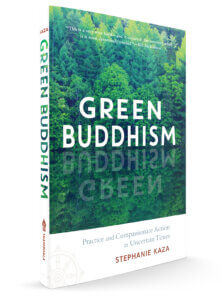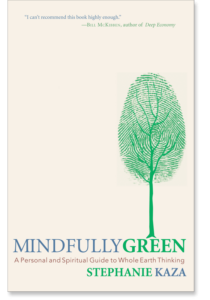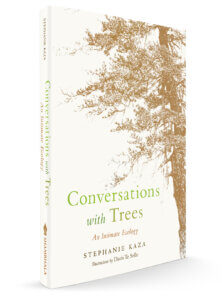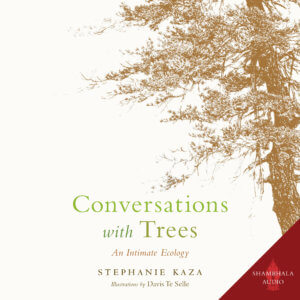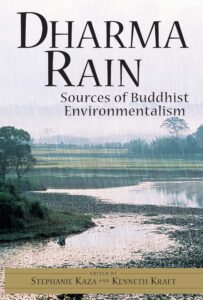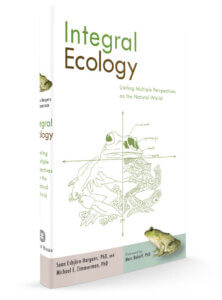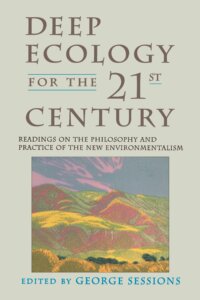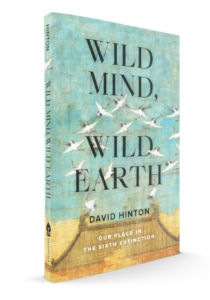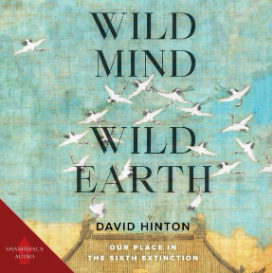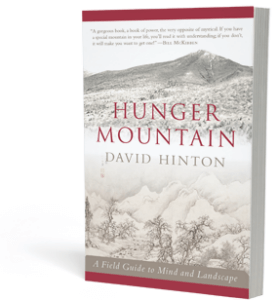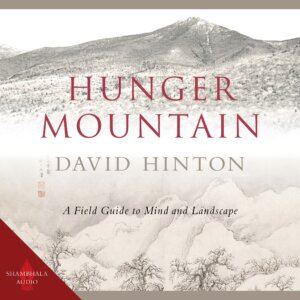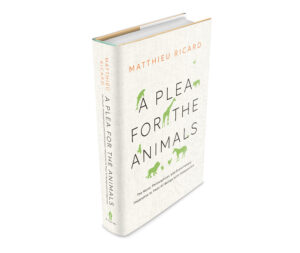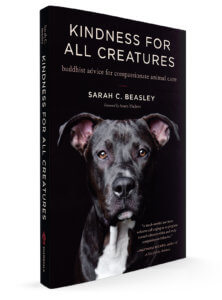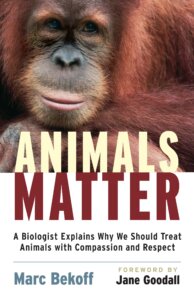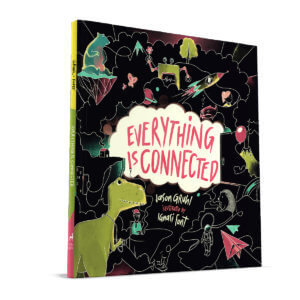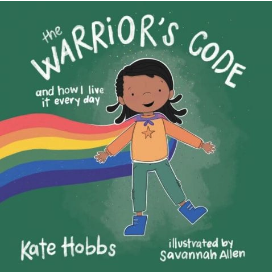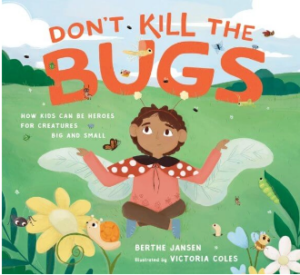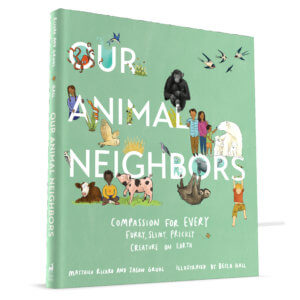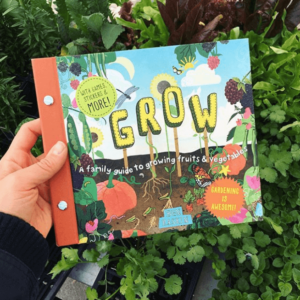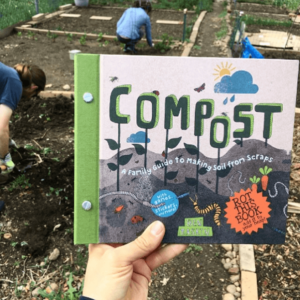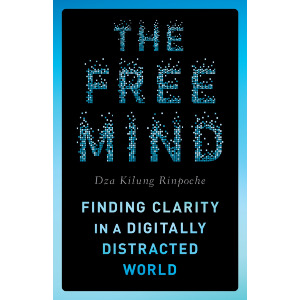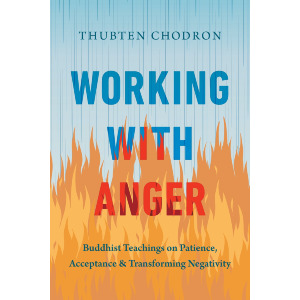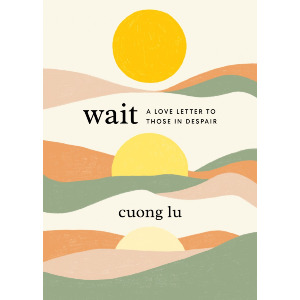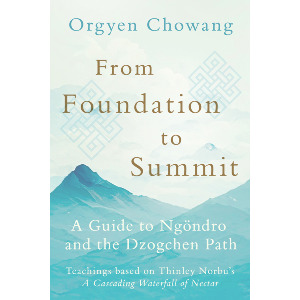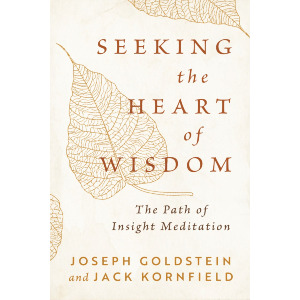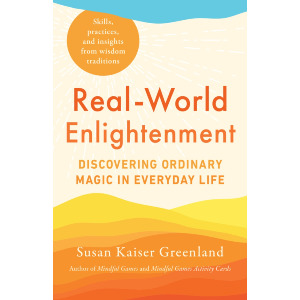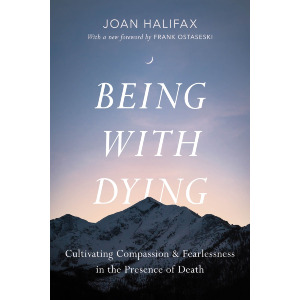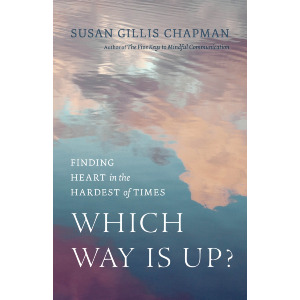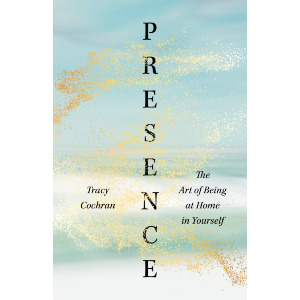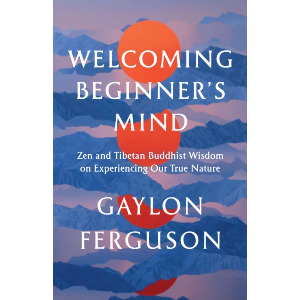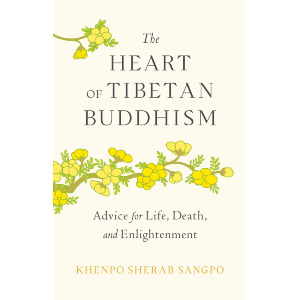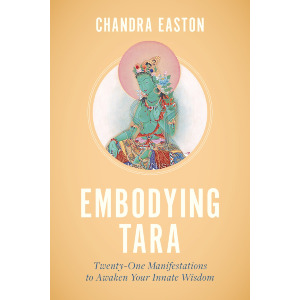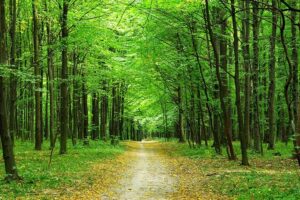
Buddhism has long since been a part of the conversation on climate and environmental awareness as well as protection of human and animal welfare. Grounded in peace, compassion, loving-kindness, and interconnection, Buddhism is well positioned both philosophically and practically speaking to combat our present climate emergency. Important Buddhist voices such as the 14th Dalai Lama and Joanna Macy have been a part of the conversation aimed at protecting the planet for decades. Today we have a growing number of voices encouraging people of all ages to advocate for not just environmental conservation and animal welfare, but also our future on Earth.
Below is a guide to our selection of books on climate change, environmental awareness, animal welfare, and more. We hope it inspires readers to engage in conversation and action geared toward protecting our future.
Jump to: New and Forthcoming | Buddhist Environmentalism | Mind & Nature | Animal Welfare | For Children
New and Forthcoming Books to Transform Climate Anxiety into Positive Action
We have two books on climate awareness coming out in 2023 including the much awaited A Future We Can Love, inspired from the 2021 Mind & Life Conversation on the Crisis of Climate Feedback Loops between The Dalai Lama and Greta Thunberg as well as a 10-step guidebook to combat eco-distress by cofounders of the Good Grief Network, LaUra Schmidt and Aimee Lewis Reau along with Chelsie Rivera.
A Future We Can Love: How We Can Reverse the Climate Crisis with the Power of Our Hearts and Minds
Wisdom and guidance to face the climate emergency from the most influential spiritual and environmental leaders of our time.
When the Dalai Lama and Greta Thunberg spoke for the first time in January 2021, millions of people around the world took notice. “It is encouraging to see how you have opened the eyes of the world to the urgency to protect our planet, our only home,” the Dalai Lama wrote to Greta before their meeting.
A Future We Can Love shares the words of these two great figures, generations apart, bringing them into dialogue with cutting-edge climate scientists, activists, and spiritual leaders to start a world-changing conversation. Readers embark on a four-part journey toward active hope in the face of the climate crisis: from knowledge of climate science through the capacity for change, to the will that is needed and the actions we can take. The book will help you:
- use interdependence as a lens for understanding both the climate crisis and its solutions
- clarify why feedback loops leave us no time to wait on climate action
- metabolize climate anxiety, grief, or burnout into useful energy
- develop your own rituals and practices for connecting to Earth and renewing hope
- overcome common obstacles to speaking and acting clearly on behalf of the human and wild communities most affected by the climate crisis
Paperback | eBook | Audiobook (coming soon)
By LaUra Schmidt
By Aimee Lewis Reau
By Chelsie Rivera
Eco-distress is real. How to Live in a Chaotic Climate is here to help you rediscover meaning, joy, and connection as the tumult around us increases. Based on the Good Grief Network’s acclaimed 10 Steps to Resilience and Empowerment in a Chaotic Climate program, this book unpacks the social, political, and spiritual nuances of the climate emergency, step by step.
- Accept the Severity of the Predicament
- Be with Uncertainty
- Honor My Mortality and the Mortality of All
- Do Inner Work
- Develop Awareness of Biases and Perception
- Practice Gratitude, Seek Beauty, and Create Connections
- Take Breaks and Rest
- Grieve the Harm I Have Caused
- Show Up
- Reinvest in Meaningful Efforts
Each step includes practices that draw on meditation, mindfulness, journaling, dance, somatics, and self-inquiry to help readers cope with overwhelming feelings, heal wounds caused by disconnection, and act in generative ways that help cultivate a just and equitable future for all.
A Fire Runs Through All Things (On Sale 11/28/2023)
By Susan Murphy
At a time of climate emergency, Zen koans show us how crisis itself can reveal the regenerative openness of life, mind, and being.
Zen koans are a tradition of holistic inquiry based on “encounter stories” from East Asia’s most radical Buddhist tradition. Turning this form of inquiry toward the climate crisis, Susan Murphy contends that koans can help us enter the mind of not-knowing, from which acceptance and possibility freely emerge. Koans reveal intimate, mythic, artful, playful, provocative, humorous, and fierce ways to engage the work of protecting and healing our world.
The koans point firstly at ourselves—at the very nature of "self." Until we hold “self” as a live question rather than its own unquestioned answer, we’re stuck looking on from the “outside,” hoping to engineer change upon a problem called “climate crisis,” all the time oblivious to the fact that we’re swimming in a reality with no outside to it, an ocean of transformative energy. Do we dare relinquish our wish for absolute control and fearlessly surf the intensity of our feelings about the suffering earth?
In addition to her use of dozens of traditional and new koans, Murphy illuminates the little-known Zen resonance with the oldest continuous body of indigenous wisdom on earth, summed up in the subtle Australian Aboriginal word Country. Murphy draws from her study and coteaching with Dulumunmun, Uncle Max Harrison, a distinguished Yuin Elder, to show how this millennia-deep taproot of intelligence confirms the aliveness of the earth and the kinship of all beings.
Buddhist Environmentalism
Shambhala Publications has long aligned itself with authors inspired by care and compassion toward the planet and living beings. Below are a handful of books geared to environmental awareness, explorations of mind and nature, and animal welfare through a Buddhist lens.
A Wild Love for the World: Joanna Macy and the Work of Our Time
Edited by Stephanie Kaza
By Joanna Macy
“Being fully present to fear, to gratitude, to all that is—this is the practice of mutual belonging. As living members of the living body of Earth, we are grounded in that kind of belonging. Even when faced with cataclysmic changes, nothing can ever separate us from Earth. We are already home.”—Joanna Macy
Joanna Macy is a scholar of Buddhism, systems thinking, and deep ecology whose decades of writing, teaching, and activism have inspired people around the world. In this collection of writings, leading spiritual teachers, deep ecologists, and diverse writers and activists explore the major facets of Macy’s lifework. Combined with eleven pieces from Macy herself, the result is a rich chorus of wisdom and compassion to support the work of our time. To learn more, visit www.joannamacy.net.
Green Buddhism: Practice and Compassionate Action in Uncertain Times
With species rapidly disappearing and global temperatures rising, there is more urgency than ever to act on the ecological crises we face. Hundreds of millions of people around the world—including unprecedented numbers of Westerners—now practice Buddhism. Can Buddhists be a critical voice in the green conversation? Leading Buddhist environmentalist Stephanie Kaza has spent her career exploring the intersection of religion and ecology. With so much at stake, she offers guidance on how people and communities can draw on Buddhist concepts and practices to live more sustainable lives on our one and only home.
Mindfully Green: A Personal and Spiritual Guide to Whole Earth Thinking
With all the attention on living sustainably, the one thing missing from the conversation is how to find a personal connection with green living that will sustain us on our green path. While practical approaches to an eco-responsible lifestyle offer important first steps, it is critical that we ground these actions in broader understanding so that we can effect real change in the world.
In this book, Stephanie Kaza describes what she calls the “green practice path.” She offers a simple, Buddhist-inspired philosophy for taking up environmental action in real, practical, and effective ways. Discover new ways to think more deeply about your impact on the natural world, engage in environmental change, and make green living a personal practice based in compassion and true conviction.
Conversations with Trees: An Intimate Ecology
Stephanie Kaza's heartfelt meditations on the singular presence of trees have helped thousands of readers feel a sense of spiritual connection to our ancient relatives. Through her attentive, loving encounters with trees, Kaza asks vital questions about what it means to reinhabit place, live simply, and speak from the truth of experience. More pertinent now than ever, her intimate exploration of the lives of individual trees demonstrates the possibility of personal and ecological sanity in our time.
Read an Excerpt from Conversations with Trees
This book was previously published under the title The Attentive Heart.
Dharma Rain: Sources of Buddhist Environmentalism
By Stephanie Kaza
By Kenneth Kraft
A comprehensive collection of classic texts, contemporary interpretations, guidelines for activists, issue-specific information, and materials for environmentally-oriented religious practice. Sources and contributors include Basho, the Dalai Lama, Thich Nhat Hanh, Gary Snyder, Chögyam Trungpa, Gretel Ehrlich, Peter Mathiessen, Helen Tworkov (editor of Tricycle), and Philip Glass.
Integral Ecology: Uniting Multiple Perspectives on the Natural World
By Sean Esbjorn-Hargens, Ph.D.
Foreword by Marc Bekoff
By Michael E. Zimmerman, Ph.D.
Today there is a bewildering diversity of views on ecology and the natural environment. With more than two hundred distinct and valuable perspectives on the natural world—and with scientists, economists, ethicists, activists, philosophers, and others often taking completely different stances on the issues—how can we come to agreement to solve our toughest environmental problems?
In response to this pressing need, Integral Ecology unites valuable insights from multiple perspectives into a comprehensive theoretical framework—one that can be put to use right now. The framework is based on Integral Theory, as well as Ken Wilber’s AQAL model, and is the result of over a decade of research exploring the myriad perspectives on ecology available to us today and their respective methodologies.
Edited by George Sessions
Every day, in newspapers and on television, we read and hear about the ongoing destruction of the environment: the greenhouse effect, ozone layer depletion, deforestation, and air and water pollution. Deep Ecology offers a solution to the environmental crisis through a radical shift in human consciousness—a fundamental change in the way people relate with the environment. Instead of thinking of nature as a resource to be used for human needs, Deep Ecology argues that the true value of nature is intrinsic and independent of its utility. Emerging in the 1980s as an influential philosophical, social, and political movement, Deep Ecology has shaped the environmental debate among leading activists and policymakers—from former Vice-President Al Gore to Dave Forman, cofounder of Earth First!
Deep Ecology for the Twenty-First Century contains thirty-nine articles by the leading writers and thinkers in the filed, offering a comprehensive array of perspectives on this new approach to environmentalism.
Exploring the Connection Between Mind and Nature
Wild Mind, Wild Earth: Our Place in the Sixth Extinction
By David Hinton
Exploring the confluence of ancient Chinese spirituality and modern Western environmental thought, Wild Mind, Wild Earth reveals the unrecognized kinship of mind and nature that must be reanimated if we are to end our destruction of the planet.
Earth is embroiled in its sixth major extinction event—this time caused not by asteroids or volcanos, but by us. At bottom, preventing this sixth extinction is a spiritual and philosophical problem, for it is the assumptions defining us and our relation to earth that are driving the devastation. Those assumptions insist on a fundamental separation of human and earth that devalues earth and enables our exploitative relation to it.
Hunger Mountain: A Field Guide to Mind and Landscape
By David Hinton
Come along with David Hinton on a series of walks through the wild beauty of Hunger Mountain, near his home in Vermont—excursions informed by the worldview he’s imbibed from his many years translating the classics of Chinese poetry and philosophy. His broad-ranging discussion offers insight on everything from the mountain landscape to the origins of consciousness and the Cosmos, from geology to Chinese landscape painting, from parenting to pictographic oracle-bone script, to a family chutney recipe. It’s a spiritual ecology that is profoundly ancient and at the same time resoundingly contemporary. Your view of the landscape—and of your place in it—may never be the same.
Animal Welfare
Every cow just wants to be happy. Every chicken just wants to be free. Every bear, dog, or mouse experiences sorrow and feels pain as intensely as any of us humans do. In a compelling appeal to reason and human kindness, Matthieu Ricard here takes the arguments from his best-sellers Altruism and Happiness to their logical conclusion: that compassion toward all beings, including our fellow animals, is a moral obligation and the direction toward which any enlightened society must aspire. He chronicles the appalling sufferings of the animals we eat, wear, and use for adornment or “entertainment,” and submits every traditional justification for their exploitation to scientific evidence and moral scrutiny. What arises is an unambiguous and powerful ethical imperative for treating all of the animals with whom we share this planet with respect and compassion.
Kindness for all Creatures: Buddhist Advice for Compassionate Animal Care
Are you doing all you can for the well-being of your beloved pet? Is your outlook toward wildlife consistent with your loyalty to cats and dogs? Structured around the Six Perfections of Buddhism, this book explores these questions and more, providing heartfelt guidance on how to apply compassion in action to our relationships with animals. In addition to being a practical resource, it encourages advocacy, challenging us to think more profoundly about caring for the creatures—both domestic and wild—with whom we share our world.
Animals Matter: A Biologist Explains Why We Should Treat Animals with Compassion and Respect
By Marc Bekoff
Foreword by Jane Goodall
Nonhuman animals have many of the same feelings we do. They get hurt, they suffer, they are happy, and they take care of each other. Marc Bekoff, a renowned biologist specializing in animal minds and emotions, guides readers from high school age up—including older adults who want a basic introduction to the topic—in looking at scientific research, philosophical ideas, and humane values that argue for the ethical and compassionate treatment of animals. Citing the latest scientific studies and tackling controversies with conviction, he zeroes in on the important questions, inviting reader participation with “thought experiments” and ideas for action.
For Children
Building a better future not only begins with us and our choices, but giving our children the opportunity to learn how to care and connect with our world. Below is a selection of books from Bala Kids, our children's books imprint dedicated to encouraging values of wisdom and compassion for children of all ages.
By Jason Gruhl
Illustrated by Ignasi Font
Everything is connected.
And since you are part of everything, you are connected to everything: to pharaohs, Ben Franklin, T. Rex, ancient Greece, to love and to poverty, hunger and peace! This is a magical story about the powerful idea that we are connected to absolutely everything in the universe.
By Kate Hobbs
Illustrated by Savannah Allen
2022 NAPPA Award winner
Kai is a warrior! And as a warrior, Kai has a code to live by and share with others. This is the warrior’s code: to be peaceful, to be kind of heart, and to respect all living things.
This empowering book teaches that bravery and courage mean treating others with kindness, standing up for what's right, and demonstrating peace and self-respect.
Don't Kill the Bugs: How Kids Can Be Heroes for Creatures Big and Small
By Berthe Jansen
Illustrated by Victoria Coles
Follow Bu and his new friends through the park as they encounter creatures who crawl and buzz all around us—bugs! From spiders and ladybugs to bees and beetles, this lively story shows kids that every living creature deserves our kindness and compassion and that we can all be everyday heroes.
Our Animal Neighbors: Compassion for Every Furry, Slimy, Prickly Creature on Earth
By Matthieu Ricard
By Jason Gruhl
Illustrated by Becca Hall
Winner of the Moonbeams Children's Animals/Pets Non-Fiction Gold Medal!
A story for children about the fundamental connection between animals and people and how we can treat all of Earth’s creatures with compassion and empathy.
Furry polar bears, playful sea otters, slow sloths, prickly porcupines, and slimy snakes are just a few of the many animals we share our world with. And even though we might not look the same or have the same needs as our animal neighbors, we have more in common with them than we might think. Through full-color illustrations and simple language, Our Animal Neighbors introduces children to the importance of treating all animals with the care and compassion they deserve. We all want to experience love, safety, and respect and this book is the first step to instilling those ideals at an early age. This planet is our home, and we should all be free to live a prosperous life regardless of whether we have hands, hooves, scales, or fur.
Grow: A Family Guide to Growing Fruits and Vegetables
By Ben Raskin
Have you ever wondered how plants work? Or why we eat the fruit of one plant, but the leaves of another? What’s the big deal about growing things—and how do we decide what we need to grow in the space we have? Discover the whole life cycle of food, from sowing and saving to planning and planting, and—most exciting of all—harvesting the food you’ve grown. In Grow, you’ll get all the inspiration and knowledge you need to get out there and start planting.
Included inside:
-
- A visual guide to the world of plants—what they need to grow, how to care for them, and more
- Grow your own pizza! How to plant for a recipe, with fruits and vegetables in pots or a whole vegetable garden
- Pull-out activities including a runner-bean growth chart, a Fruit Pairs game, Rainbow Taste Wheel (turn the dial to find out which vitamins are found in each fruit and vegetable), and four sheets of stickers
Compost: A Family Guide to Making Soil from Scraps
By Ben Raskin
What happens to the food we don’t eat—all those discarded apple cores and rejected Brussels sprouts? Did you know that there are as many living organisms in a teaspoon of soil as there are people in the whole world? And that wriggly worms are our cool, earthy friends?
In Compost, Ben Raskin shares his expert knowledge, answering these questions and many more, through a whole heap of engaging activities and games. Teach your kids that composting is fun (and stop them from moaning about emptying the compost bucket) with this funky guide that takes you from compost menus—who knew worms were gourmands?—to Worms and Ladders, a fresh take on a traditional board game. Find out the rules for setting up your very own Worm Lovers’ Society, learn all about the garden-to-plate cycle together, and get your family's feet firmly set on the road to a planet-friendly lifestyle.

